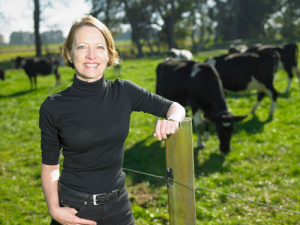Without the increase, extra labour cannot be employed and the lifestyle – so promoted in primary production – is eroded.
Of course, some people will say ‘nonsense, it is as good as it has ever been’. However, if that is so overall, why are agricultural classes at tertiary institutions struggling for numbers and why is migrant labour becoming the norm? Why is agricultural debt still in the news? And why are the rural support groups busier than ever?
It would appear that life in the land of milk and honey -- and all the other good things from New Zealand primary production -- is not rosy these days. This is despite the current milk price forecast, strong schedules and ongoing demand for products from orchards and market gardens.
Agriculture Minister Damien O’Connor has stated that we live in a world that is scrutinising every part of our farm operation. He has also said that the consumers want to know where their products come from and ‘more’ about what they are consuming.
Research from the UK Food Standards Agency supports the minister’s statements. The top issues of concern for food, in general, were the amount of sugar in food (55%), food waste (51%), food prices (43%) and animal welfare (42%).
Awareness of these issues has increased following high-profile, reality cooking television shows hosted by celebrities such as Jamie Oliver.
For NZ primary producers and exporters, price and animal welfare are the key factors. The good news is that ‘World Animal Protection’, which runs the ‘Animal Protection Index’ has already given NZ an ‘A’ rating for welfare. ‘A’ is the highest rating possible, and has been achieved by only four countries globally. The other three are UK, Switzerland and Austria.
The index evaluates 20 indicators including ‘formal recognition of animal sentience’, support for the Universal Declaration on Animal Welfare, and a legal framework which includes standards for animal welfare and protection for animals in all areas.
The ‘A’ rating given to NZ by World Animal Protection deserves advertising. Organisations such as SAFE and Farmwatch have given a very different impression to consumers. The imbalance could be redressed by action from Wellington.
The second issue of ‘price’ is more difficult. Price to the consumer matters, and is set by the supermarket. Supermarket owners in NZ have recently made it into National Business Review’sRich List.
Last year, France passed a new law stating that food in supermarket needs to have at least a 10% margin which, in addition to the fact that selling food below the purchase price is illegal, was hoped would protect the primary producers. At the same time, consumer acceptance of higher prices was questioned.
Whatever consumers say about purchasing preferences, price remains a major factor. Everything NZ is doing to comply adds to costs of production, not to the price that people will pay under the current marketing strategies.
If NZ primary producers are to reap the rewards of the regulatory environment, it is imperative that marketing reflects the standards under which we are operating. And that might mean that we need to embrace Country of Origin Labelling (COOL).
In the UK Food Standards Agency survey, 75% of people said they trust food to be what the label (or seller) says it is, and is accurately labelled, and 73% trusted the authenticity of ingredients/origin/quality of food.
Some large NZ exporters have indicated that COOL might work against them overseas. However, few companies – so far – have managed to extract a premium from the marketplace with their current strategies.
A change is required somewhere to enable the creation of vibrant businesses that will attract young NZers. This is another challenge for the Agriculture Minister and his Primary Sector Council to address.
• Dr Jacqueline Rowarth CNZM CRSNZ HFNZIAHS has a PhD in soil science and has been analysing agri-environment interaction for several decades.

















